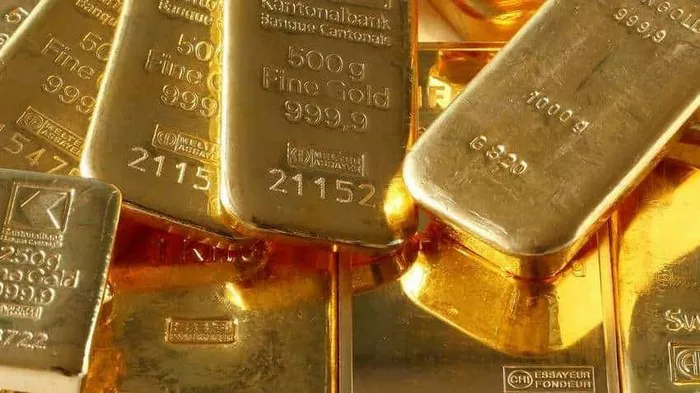In the dynamic world of financial markets, investors often seek ways to diversify their portfolios and manage risks. One popular instrument that allows for both speculation and hedging is gold futures. In this article, we will delve into the intricate world of gold futures trading, exploring the fundamental concepts, market dynamics, and the significance of futures in the context of the precious metal.
Defining Gold Futures
Gold futures are financial contracts that obligate the buyer to purchase, or the seller to sell, a specified amount of gold at a predetermined price on a future date. These standardized agreements are traded on futures exchanges, providing participants with a platform to speculate on the future price movements of gold or hedge against potential risks.
Understanding the Mechanics of Gold Futures
The futures market operates on the principle of price speculation. Traders engage in buying or selling gold futures contracts with the expectation that the future market price will either rise or fall, providing an opportunity for profit. This speculative nature is what distinguishes futures trading from traditional investing in physical gold.
One key aspect of gold futures is leverage. Participants can control a substantial amount of gold with a relatively small capital investment. This amplification of trading positions allows for potentially higher returns, but it also introduces a higher level of risk, as losses can be equally magnified.
Market Participants in Gold Futures
Various market participants engage in gold futures trading, each with distinct motives and strategies. Hedgers, such as miners and jewelers, use gold futures to mitigate the risks associated with price fluctuations. Speculators, on the other hand, seek to profit from price movements without any intention of taking physical delivery of the metal.
Institutional investors, including hedge funds and commodity trading advisors, play a significant role in gold futures markets. Their large-scale participation can influence market dynamics and contribute to price volatility. Understanding the interplay between these diverse participants is crucial for anyone navigating the gold futures market.
See Also: How to trade gold futures on td ameritrade?
The Role of Exchanges in Gold Futures Trading
Futures contracts are traded on organized exchanges, providing a centralized marketplace for buyers and sellers. Prominent exchanges such as the Chicago Mercantile Exchange (CME) and the Intercontinental Exchange (ICE) facilitate the majority of gold futures trading. These exchanges standardize contract terms, ensuring transparency and liquidity in the market.
The futures market also relies on clearinghouses to manage the risk associated with trading. Clearinghouses act as intermediaries, guaranteeing the fulfillment of contracts and mitigating counterparty risk. This infrastructure is essential for maintaining the integrity and stability of the gold futures market.
Factors Influencing Gold Futures Prices
Numerous factors influence the pricing of gold futures contracts. While supply and demand dynamics play a role, other economic, geopolitical, and macroeconomic factors contribute to the volatility of gold futures prices. Traders must be attuned to global economic indicators, interest rates, inflation, and geopolitical events to make informed decisions in the futures market.
The Federal Reserve’s monetary policy decisions also have a profound impact on gold futures. Changes in interest rates can influence the opportunity cost of holding gold, affecting demand for the precious metal. Traders closely monitor central bank statements and economic indicators to anticipate potential shifts in the market.
Risk Management in Gold Futures Trading
Given the inherent volatility of commodity markets, risk management is a critical aspect of gold futures trading. Traders employ various strategies to protect their positions and limit potential losses. Stop-loss orders, for example, automatically trigger the sale of a futures contract if the price reaches a predetermined level, helping traders control risk.
Additionally, diversification is a fundamental risk management technique. Investors often combine gold futures with other asset classes to create a balanced portfolio that can withstand market fluctuations. Understanding and implementing effective risk management strategies are essential for long-term success in the gold futures market.
Regulatory Framework for Gold Futures Trading
To maintain market integrity and protect participants, gold futures trading is subject to regulatory oversight. Regulatory bodies such as the Commodity Futures Trading Commission (CFTC) in the United States establish and enforce rules governing futures markets. These regulations are designed to prevent fraud, manipulation, and ensure fair and transparent trading practices.
International regulatory bodies and exchanges work together to harmonize standards and promote a consistent regulatory environment. This collaboration is crucial in fostering investor confidence and maintaining the global credibility of gold futures markets.
Conclusion
In conclusion, gold futures trading is a complex but integral component of the broader financial landscape. With its roots in speculation and risk management, gold futures provide investors with a versatile instrument for navigating the ever-changing dynamics of the precious metal market. From understanding the mechanics of futures contracts to recognizing the influential factors and implementing effective risk management strategies, participants in the gold futures market must navigate a nuanced environment to achieve success. As the global economy evolves, the role of gold futures is likely to remain significant, offering both opportunities and challenges for those willing to engage in this dynamic arena.

